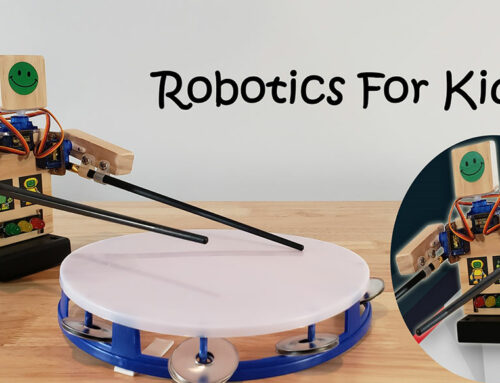By DM Michals
Looking into homeschooling 5th grade? Whether you’ve been homeschooling since pre-K or this is your first year, you are in the right place! We’ve compiled everything you and your fifth grader need to get started and keep you on the right track. Competencies, developmental milestones, field trip ideas, and more are included below!
By age ten, your child is able to read independently and silently, delivers messages clearly and confidently, and now asks relevant questions about the subject at hand. You’ll see growth spurts, increased appetites, and your child needs a lot more sleep. It’s a big year for your fifth grader transitioning between childhood and adolescence. And, at times they will alternate between the two.
How can you actually use this?
Homeschooling curriculum in the state of Texas must include the five basic subjects of reading, spelling, grammar, mathematics and good citizenship. Science, history and social studies are included below for you. Not from Texas? Check out state requirements for homeschooling fifth grade in your state.

Suggested School Supplies
- Pencils
- Pencil sharpener
- Eraser
- Pens
- Lined paper, spiral notebooks and/or composition notebooks
- Binders (if needed)
- Folders
- Colored pencils
- Highlighters
- Paints (tempera and watercolor)
- Paintbrushes
- Paper for painting
- Construction paper
- Whiteboard
- Dry erase markers
- Ruler
- Protractor
- Children’s scissors (sharp-pointed)
- Glue sticks
- White glue
- Tape
- Math manipulatives
- Sight word flashcards
- Math flashcards (ex. multiplication tables)
- Bookmarks (for longer books)
- Globe
- Wall maps of the world and the United States
- Library card
Fifth Grade Milestones by Subject

Fifth Grade Language Arts Homeschool
https://www.antilles.vi/uploaded/pdfs/5th_Grade_Core_Competencies.pdf
- Decodes unknown words using phonics and context clues.
- Able to read independently and silently.
- Determines the main idea of a story.
- Identifies basic parts of a story (setting, characters, plot, etc…).
- Connects texts she reads to her life, other books, and the world.
- Able to summarize a story orally or in writing.
- Able to identify genre (realistic fiction, historical fiction, fantasy, non-fiction, etc…).
- Easily identifies parts of speech.
- Spells frequently used words and 5th-grade spelling words correctly.
Writing for 5th Graders
https://www.antilles.vi/uploaded/pdfs/5th_Grade_Core_Competencies.pdf
- Writes legibly in print and cursive.
- Organizes three-paragraph pieces (non-fiction or fiction) with a beginning, middle, and end.
- Writes to express feelings, tell stories, and summarize information.
- Responds to comprehension questions using complete sentences.
- Able to vary sentence structure.
- Able to identify the parts of speech.
- Spells frequently used words and 5th-grade spelling/vocabulary words correctly.
- Writes for different purposes and is becoming familiar with different forms of writing. (expository, descriptive, persuasive, and narrative).
History and Social Studies for 5th Graders
http://ritter.tea.state.tx.us/rules/tac/chapter113/ch113a.html
- Understands the principles of the U.S. free enterprise system.
- Able to quote the first line of the Declaration of Independence and the Preamble to the United States Constitution.
- Understands the cause and effects of European colonization and recognizes important figures.
- Understands the events that led up to the American Revolution including the Boston Tea Party, French and Indian War and important figures.
- Able to identify our Founding Fathers and Patriot heroes.
- Understands political, economic, and social changes that occurred in the United States during the 19th century.
- Applies geographic tools to construct and interpret maps as well as translate data into a variety of formats. Tools used include grid systems, legends, symbols, scales, and compass roses.
- Understands the different political, population, and economic regions in the U.S.
- Able to locate major political and physical features on a map such as the 50 states and their capitals, regions such as the Southwest and the Northeast; and the Rocky Mountains and Mississippi River.
- Understands the main ideas in the Declaration of Independence, the U.S. Constitution, and the Bill of Rights.
- Compares the differences and responsibilities of national and state governments.
5th Grade Math
http://ritter.tea.state.tx.us/rules/tac/chapter111/ch111a.html#111.6
- Understands relationships as related to place value of the digit in decimals through the thousandths.
- Able to compare and order two decimals to thousandths and represent comparisons using the symbols >, <, or =.
- Able to round decimals to tenths or hundredths.
- Adds, subtracts, multiplies, and divides multi-digit numbers accurately.
- Able to add and subtract decimals.
- Multiplies three-digit numbers by two-digit numbers accurately and with ease.
- Solves quotients of up to a four-digit dividend by a two-digit divisor.
- Introduces algebraic reasoning and is able to represent and solve multi-step problems involving the four operations with whole numbers using equations with a letter standing for the unknown quantity.
- Determines the volume of cubes and rectangular prisms.
- Understands with fluency how to graph an ordered pair, such as (2,5).
- Collects and organizes data.
- Knowledgeable in financial resources to sustain lifetime financial security.
- Able to explain the difference between gross income and net income; and income tax, payroll tax, sales tax and property tax.
- Understands the advantages and disadvantages of different methods of payment, including checks, credit cards, debit cards and electronic payments.
- Develops a system for keeping and using financial records and is able to balance a simple budget.
- Able to describe actions that might be taken to balance a budget when expenses exceed income.
Science for 5th Graders

- Able to differentiate between inherited traits and learned behaviors.
- Knows the differences between renewable and nonrenewable resources.
- Able to organize, examine and evaluate data using current technology and tools.
- Collects, records, and analyzes information using tools and materials to support observations of habitats or organisms such as terrariums and aquariums.
- Understands that the Earth’s surface is constantly changing and recognizes how landforms such as deltas, canyons, and sand dunes are the result of changes to the Earth’s surface by wind, water, or ice.
- Able to differentiate between weather and climate.
- Easily identifies and explains the different characteristics of the Sun, Earth, and Moon.
- Able to explain how the Sun and our oceans interact in the water cycle.
- Identifies that the Earth rotates on its axis causing a day/night cycle every 24 hours.
- Knows that organisms have structures and behaviors that help them live and survive within their environments such as hooves on prairie animals or webbed feet in aquatic animals.
Good Citizenship for 5th Graders

Being a good citizen not only means understanding your right to vote and the privileges of citizenship, but also respect for our planet, good stewardship, and understanding the world around us. If you are in need of resources and lesson plans to fulfill this requirement, consider joining THSC. We offer our “Lone Star Study” guide as a free download for our members.
Here are a few ideas:
- Become involved in events and initiatives such as Capitol Days sponsored by THSC.
- Learn about the electoral process in local, state, and national elections.
- Register to vote and vote! Take your child with you to see the process. Children under the age of 18 are allowed to go with you and even go inside the booth with you in every state in the United States.
- Write a letter to your elected officials in support or against legislation affecting lives within your community. Start a letter-writing campaign to get others involved!
- Attend city council meetings and discover the workings of your town.
- Learn about local and national non-profit organizations and how each serves your community such as the United Way or the Boys and Girls Clubs of America. Discuss as a family if you’d like to volunteer at a non-profit in your community.
- Attend rallies of causes you believe in as a family.
- How is your town significant in Texas history? Find out! Visit the library or chat with a local historian.
- Learn the words to “Texas, Our Texas” and discover the meaning and history of the Pledge to the Texas Flag and the Pledge of Allegiance.
- Discover how each of us affects the environment from how much water we use to how much trash we produce. Then, discuss and implement ways you as a family can lessen your footprint.
- Learn about recycling and where and how you recycle items in your community.
- Keep our state clean by picking up litter everywhere you go.
- Do you know the mayor of your town or your state representatives? Identify leaders in state, local and national governments as a family, including our governor, local members of the Texas Legislature, U.S. senators, local U.S. representatives, your town’s mayor, and Texans who have been president of the United States
For more ideas, check out our teaching good citizenship page.

Developmental Milestones for Ten-Year-Olds
All children develop at different rates. However, certain skills are easily identified by the age of ten. If you have concerns about your child’s development after reviewing this list, please discuss those with your healthcare provider.
Gross Motor Skills
https://www.livestrong.com/article/125518-physical-development-10yearolds/
- Increased physical endurance makes longer walks or bike rides easier.
- Shows increased body awareness and signs of a growing, maturing body.
- Able to adjust speed, force, and direction depending on the situation.
- May complain of growing pains or muscle cramps.
Fine Motor Skills
https://www.antilles.vi/uploaded/pdfs/5th_Grade_Core_Competencies.pdf
- Manual dexterity continues to increase.
- Writes legibly in cursive and print.
- Able to type on a keyboard at a minimum of 10 words per minute.
- Uses table utensils properly; able to cut food with a knife and fork independently.
Talking and Understanding
https://www.antilles.vi/uploaded/pdfs/5th_Grade_Core_Competencies.pdf
- Has a deeper understanding of how relationships with others can include more than just common interests.
- Begins to understand the points of view of others.
- More aware of others’ perceptions.
- May be uncertain about changes happening in their bodies with puberty.
- May face strong peer pressure and find it hard to resist if they struggle with self-esteem.
- Has a first crush or pretends to have crushes to fit in with peers.
- Able to resolve social problems, like fights with friends and siblings.
- Sense of what is important is influenced more by friends.
- Enjoys being part of a team, group, or club.
- Are kind, silly, and curious, but also can be self-involved, moody, and disrespectful.
- May test out new attitudes, clothing styles, and mannerisms while figuring out where/how to fit in.
- Delivers messages clearly and confidently.
- Asks relevant questions.
- Uses complex sentences and different types of sentences to express ideas clearly.
- Ready for oral presentations in front of an audience.

10 Great Books or Series for Homeschooling 5th Graders
Find these books at your local library or find them at any bookstore. If you shop on Amazon, please visit Amazon Smile and choose Texas Home School Coalition as your charity of choice!
We also recommend checking with a site such as Redeemed Reader or Plugged-In as to the appropriateness of any particular book for your child and their personal maturity level.
Another wonderful place for book recommendations is The Read-Aloud Revival, which features booklists and reviews for all kinds of books and reading levels.
- Frindle by Andrew Clements. When Nick Allen learns some interesting facts about how words are created, he starts a phenomenon as his new word for pen, frindle, takes over his classroom, the city and then goes nationwide!
- Artemis Fowl by Eoin Colfery. introduces us to Artemis Fowl–millionaire 12-year-old genius and criminal mastermind. When Artemis kidnaps the leader of the fairies, he meets his match when he discovers that these fairies aren’t the sweet ones from bedtime stories. These fairies are armed and dangerous.
- The Chronicles of Narnia by C.S. Lewis. In this seven-book series by C.S. Lewis, readers learn about the characters that have fascinated fans for 70 years. Selected as one of America’s Top 100 Most-Loved Novels by PBS’s The Great American Read, readers join in epic battles against good and evil, discover forever friendships and horrible betrayals and meet the fantastic creatures that encompass Narnia.
- Hero Tales by Dave and Neta Jackson. In this beautifully illustrated treasury, Dave and Neta Jackson present the true-life stories of fifteen key Christian heroes. Each hero is profiled in a short biography and three educational yet exciting and thought-provoking anecdotes from his or her life.
- The Incredible Journey by Sheila Burnford. This beloved classic that inspired the movie Homeward Bound has captured the hearts of generations of readers. The lengths to which these three animals will go for each other and for their owner make for a thrilling and thoroughly unforgettable tale.
- On the Edge of the Dark Sea of Darkness (The Wingfeather Saga) by Andrew Peterson. Full of characters rich in heart, smarts, and courage, On the Edge of the Dark Sea of Darkness is a tale children of all ages will cherish, families can read aloud, and readers’ groups are sure to enjoy discussing for its many layers of meaning.
- Peter Pan by J.M. Barrie. The classic tale of mischievous Peter Pan, swashbuckling pirates, budding romance, and all sorts of adventures on Neverland. The book explores the conflict between the innocence of childhood and the responsibility of adulthood in a charming and witty way.
- Stuart Little by E.B. White. The classic story by E. B. White, author of the Newbery Honor Book Charlotte’s Web and The Trumpet of the Swan, is about one small mouse on a very big adventure. Stuart Little is no ordinary mouse. Born to a family of humans, he lives in New York City with his parents, his older brother George, and Snowbell the cat. Though he’s shy and thoughtful, he’s also a true lover of adventure.
10 Awesome Field Trips for Homeschooling 5th Graders
Everyone loves a field trip! From tours of the Alamo to visiting one of our 103 state parks, Texas has something to do for everyone! Don’t feel you have to leave your town or your own neighborhood to enjoy a good field trip. Be creative, and your next walk down your street can be an educational experience. Here are a few ideas to get you started!
- First Responder Appreciation: Police, fire, and EMS stations are located throughout most cities. Locate the one closest to your house and make a connection. Tour a fire station, talk to a police officer or reach out to an emergency medical technician and find out what it truly means to be a first responder.
- Government: THSC Capitol Days are one-day, hands-on events that allow homeschooling families to fully participate in the state legislative process. These events give the opportunity to defend the rights of homeschool families in Texas, meet representatives and staff and actually help pass a law. A free grade-specific tour is available at our Texas state capitol, which includes history, architecture and the legislative process.
- Job Fair: Has your child shown an interest in an activity or profession? Ask around! Many professionals are quick to assist. Discover the ins and outs of what makes their jobs unique while helping guide an eager learner into a possible career choice.
- Historical Sites: Enjoy the freedom of homeschooling by bringing your homeschool studies to life. Visit the places you are learning about each day! Tour places close to home or go on a trip through Texas and learn along the way.
- Museums: Name it and Texas has it as a museum! From Fair Park in downtown Dallas with its “only intact and unaltered pre-1950s world fair site in the United States,” to the Battle for Texas – The Experience in San Antonio revealing the daily lives of early Texas settlers and the tensions leading up to the Texas Revolution, our museums are abundant and unsurpassed.
- Sports: Have you visited the Heart of Texas and gone to the Texas Sports Hall of Fame? Offering educational tours for groups from 15 to 30, the field trips focus on physical fitness and health as well as drug awareness and Major League Math. If you are going in smaller groups, don’t worry. The museum is open to the public and offers a collection of memorabilia and history perfect for any sport’s enthusiast. Check ahead before your visit! The museum is closed on Baylor University’s game days.
- Libraries: Libraries throughout our state offer summer programs, spring break activities, and clubs and events throughout the year for all ages. Take advantage of free programs and educational opportunities and make new friends while you’re there.
- Theater/Music/Art: In March 2018, scientists at the National Institutes of Health Kennedy Center Workshop on Music and the Brain concluded that music promotes language development and has a positive impact on cognitive functions including attention, visual-spatial perception, and executive function (childdevelopmentinfo.com). Music, art, and theater will open your child’s mind to other worlds and possibilities. Opportunities to view the arts are available everywhere! Grab a blanket and head to a free outdoor concert, stroll through a sculpture garden or grab those tickets to the latest must-see show.
- Get Outside: There’s no better place to learn about ecosystems than in your own backyard. Search for insects, nests and other furry habitats. Simply walking around noticing nature opens up a world of insights and conversations.
- Living History: Nothing solidifies new knowledge like hands-on learning. Museums and special events throughout Texas offer presentations and workshops that keep the craftsmanship, allure, and heirloom skills of our past available for your family to learn today. Do you have a state park nearby? Check their schedules at https://tpwd.texas.gov/state-parks/ to see what fun, heritage events they have planned, especially around the holidays!
For more Texas road trip ideas (and beyond), check out our roadschooling page!

Science Experiments for 5th Graders
What better way to enhance understanding of our natural world than to incorporate science into your school day! Here are five fun and easy experiments for you and your budding scientist.
- Quick Sand – Nature’s Trap of Solids and Liquids
- Sounds Wave – All You Need Is a Spoon and Some String
- Supplement – How Fast Does Sound Travel worksheet
- Endothermic Reactions – Let’s Bake a Cake!
- Discover Terrariums with Dionaea muscipula, Our Favorite Insectivorous!
We believe no one cares more about a child’s education than his parents and hope this article has equipped you in homeschooling 5th grade! Would you like more content like this on other grades? Don’t miss our coming articles in this series —subscribe to our free publications today!





Thank you for the guide, it help me learn to teach my 5th grader (John) get in to school.
I’m glad this was helpful. Blessings, Customer Relations
How many hours a day do most people homeschool? Do you think 70+ year-old grandparents can successfully homeschool one 5th grader? I’m exploring the possibility because of COVID.
Dear Elaine,
That depends on the state in which you live. In Texas, there are no required reporting hours. Many families homeschool 3-5 hours per day, for a child in the 5th grade. That can vary based on the child’s abilities. In Texas, a grandparent can homeschool for a parent, as long as the parent oversees the homeschool, or a grandparent with custody and the right to educate, can homeschool the child.
Check your state requirements and learn more at https://homeeducator.com/getting-started/state-requirements/
Blessings, Ashley – Customer Relations